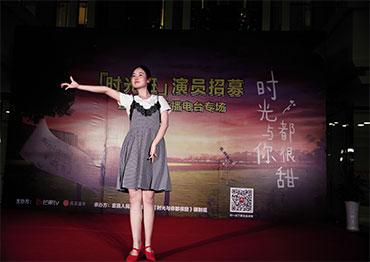Wang Peilu is among those getting a career boost from good casting.
Though a minor role with a few appearances, Wang’s realistic portrayal of gangster Crazy Donkey in the gritty 2023 hit series Knockout set social media abuzz with positive reviews, which helped raise the show’s profile.
Wang, a veteran actor and a Beijing Film Academy graduate, said Knockout’s casting success signals a shift in industry standards.
“Gone are the days when actors raked in dough by lip syncing and TV dramas were a hit regardless of how clunky the story was,” Wang told NewsChina in February.
Hit shows like Age of Awakening spotlighted the importance of supporting roles. “While casting Age of Awakening, we underscored the candidates’ convincing acting styles which can transport audiences to the era in quite a natural way,” Huang Tao, co-founder of Stars Crazier, told press in July 2021 after the show’s release.
Set between 1915 and 1921, Age of Awakening centers on a group of young revolutionaries and the magazine La Jeunesse, which helped inspire the Communist Party of China’s founding.
Stars Crazier recommended Ma Shaohua for an audition. Ma played Cai Yuanpei, former president of Peking University, who set a foundation of inclusiveness for a refreshing, liberal and progressive atmosphere on the campus.
Ma shone in the sixth episode, when he delivered Cai’s inaugural speech. “With a slow and steady rhythm, Ma skillfully brought a century-old speech that still resonates in today’s society back to life,” read a review from Sohu. com.
The casting agency also landed career-making parts for younger actors such as Zhang Wanyi, who won acclaim for his role as the strong-willed Chen Yannian, an early Party member who refused to kneel before his execution in 1927. The actor won over the crew with his steadfast gaze, which tapped the essence of the character, director Zhang Yongxin told China Central Television (CCTV) in 2021.
“A competent casting director must be astute enough to distinguish the unique characteristics of each actor in an extensive talent pool,” Huang told NewsChina.
In addition to working with talent and acting agencies, casting directors scout for talent at schools and theater companies, as well as scouring indie movies for potential stars.
While A-lister Zhao Liying got top billing for her role as businesswoman Xu Banxia in TV series Wild Bloom (2022), many young viewers connected with the comedic supporting role of Xu’s father, played by established character actor Wang Jinsong.
“Through Wang’s performance, the audience immediately understands the man is a short-sighted and snobbish father. But despite these character traits, which could easily come off as despicable, Wang made him laughable and lovable in only a few scenes,” reads a review from Baidu’s entertainment page.
The acclaim for performances from actors like Wang and Zhang used to be very low compared to the growing presence of online celebrities in the film industry.
Empowered by their colossal followings, influencers are snatching up roles not for their acting abilities, but for their promised box office draw, good looks and online visibility.
To drum up publicity, many resort to gaffes and scandals – both real and fabricated. Several young pop stars were dubbed “hopeless illiterates” after appearing in interviews where they struggled to answer basic questions about their roles or the historical settings of their current projects. For example, during a press conference for espionage film Hidden Blade in January, heartthrob Wang Yibo was visibly stumped when asked what the most difficult part of his role as a spy for the Communist Party of China had been.
Veteran actor Chen Daoming lashed out against the industry trend during China’s two sessions in March 2021, the annual top government legislative meetings, where he accused influencers of prioritizing online traffic over pushing forward the country’s art and culture.
“When casting the Age of Awakening, we didn’t consider celebrities as much as who fit the roles best. That is why the casting won acclaim and became one of the hottest topics on Weibo,” Huang told NewsChina.

 Old Version
Old Version


